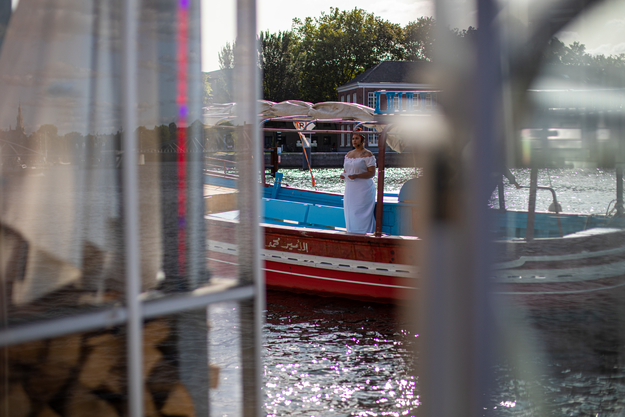My land welcomes you.
The mountains told us you were coming.
The trees whispered you were close.
It was written in the smoke.
We have been expecting you.
There are no maps to lead you to what you were looking for so let me guide you.
Because, how is my body not the map of my country?
My rib cage home to the ocean waves crashing into me.
I am the water that flows to the veins of this land.
I bleed soil if you cut me.
I am the air that you breathe in when I breathe out.
There is no way of passing through here without inhaling me, without consuming me.
Take this bread for it is my body.
Graded from cassava.
For the crops have been harvested from my flesh.
I am the taste of home on your tongue.
I am alive and everything that grows here.
Because how is my country not the map of my body?
My lungs vast and wide I like the blue skies.
My tears sweet like the rivers when they run down my cheeks.
I cry the sounds of the rainforest.
My eyes sing the pain of this land.
I welcome you with open arms to explore our landmarks.
To explore me.
You see, I am all the treasures of this country.
I am the real pearl of the Caribbean.
There is nothing for you to own because it already belongs to me.
Can you see how the freckles on my skin form islands?
My thighs golden like the sands of our coasts.
Are these what attracted you to visit me?
Is this all you want for me?
My land welcomes you.
The mountains told us you were coming.
The trees whispered you were close.
It was written in the smoke.
We have been expecting you.
But there is nothing you can discover that I already haven't found.
Don’t overstay your welcome.
Welcome to Code Noir.
